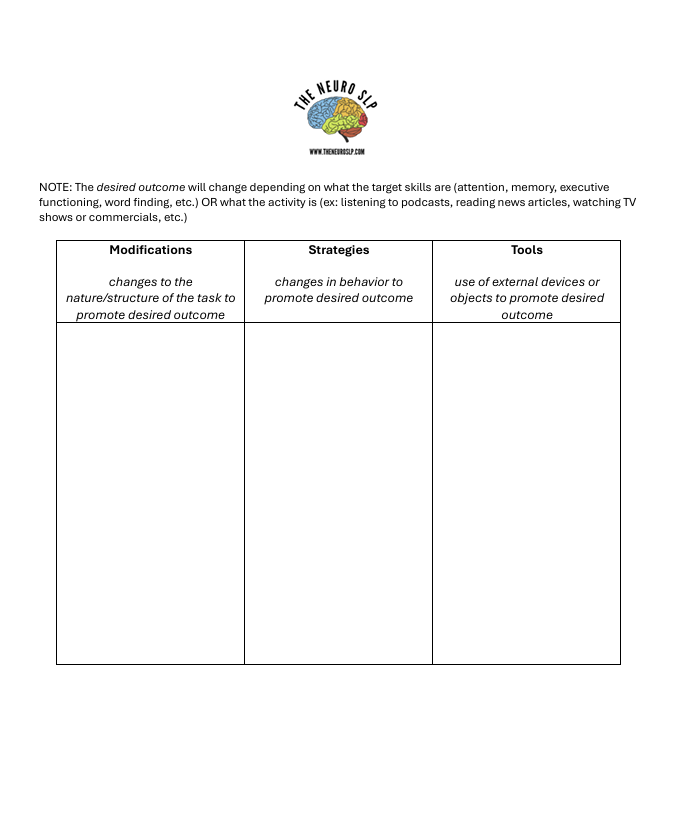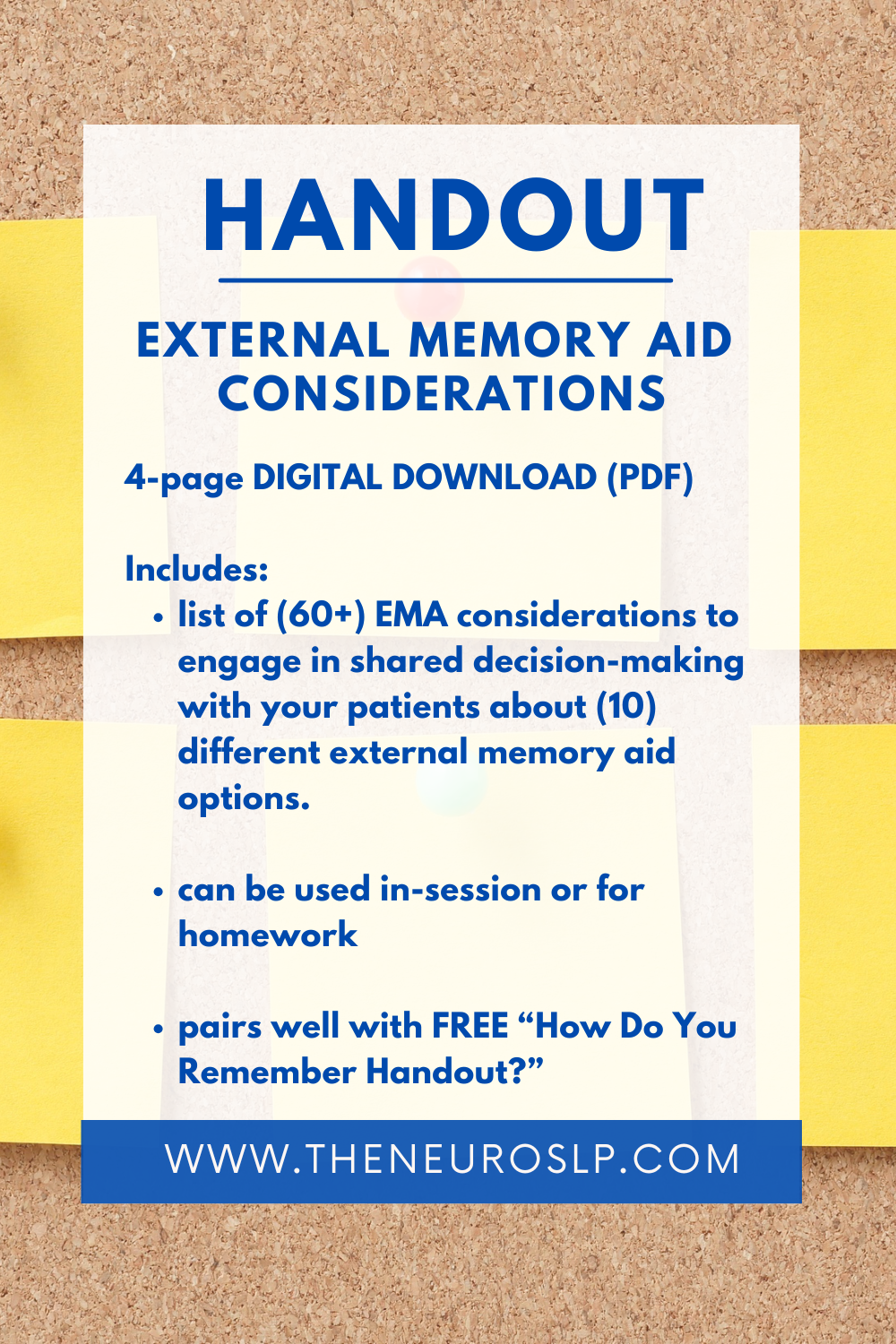The term “compensatory strategies” is often used in cognitive-communication therapy. When you look up the word “compensatory” in the dictionary, it is defined as “making up for loss”. Using the word “compensatory” not only highlights impairment but can elicit negative emotional responses from patients who are in recovery. If the field Speech Language Pathology was still operating under a medical model that emphasizes impairment, this wouldn’t be a problem---- but we aren’t. Our field now operates under a person-centered care model so this dilemma is apparent.
It is my belief that we as Speech Language Pathologists use the word “compensatory” too much in our language with patients. Who wants to be reminded of their impairments all the time? Instead, I recommend referring to behaviors or things that are helpful as “supports”, because who doesn’t need a little support every now and then?
What many SLPs mean when they use the word “compensatory” is “this is something that is helpful for the patient’s attention, memory, etc”. Instead, many say “these are the patient’s compensatory strategies”. Everything that helps a patient is not “compensatory”. If it were, then even people who don’t have cognitive -communication challenges would use things to “compensate”. I prefer to normalize the use of supports that others might consider “compensatory”. Examples of ways that I normalize use of supports include the following:
- Bringing in my own personal calendar to show patients how much I use it to keep track of tasks and events
- Showing patients my own pill container I use daily as an external memory aid
- Showing patients how I organize my own digital sticky notes on my desktop
For example: When it comes to use of internal memory strategies, I try to remind patients that growing up much of our formal education was taught to strategies. We learned our ABCs to a song. We learned mathematical order of operations with a mnemonic (Please excuse my dear aunt sally- PEMDAS). Hence, strategy usage has always been around, we maybe just aren’t as consciously aware of them all the time.
Again, normalizing use of strategies is key--- especially when we are trying to get patients to “buy in” to new behaviors or habits. Think of other ways to frame your message when discussing helpful “modifications”, “strategies” or even “tools”. HERE you can find a FREE copy of my “Modifications, Strategies, and Tools” Chart to help you.
This FREE “Modifications, Strategies, and Tools” Chart is a visual aid that is meant to promote collaborative brainstorming between Speech Language Pathologists (SLPs) and patients. With the chart, SLPs and patients and generate ideas of what is helpful when patients are faced with certain tasks or conversations thar are difficult for them.

This chart serves as "toolbox" that patients can reference when they want a desired outcome, but just need a little help getting there. This chart highlights:
· How can we modify the task to get the desired outcome?
· What strategies can be implement to get the desired outcome?
· What tools can we use to help get the desired outcome?
Using the "Modifications, Strategies, & Tools" Chart, SLPs can guide the discussion to what helpful options are available to the patient AND what the patient has the power to control. Examples of what SLPs can say while using the chart for collaborative brainstorming with patients include:
· "I see you have lots of new appointments on your appointment list. Is there a tool that you can use to help you keep track of them?"
· "It appears you have several chapters to read for your class this week. How can you modify the task to make it easier for you? Or are there any strategies you can apply before or while you’re reading?
· "I know it is hard for you pay attention when others keep interrupting you. What are some modifications that can be to reduce the likelihood of interruption? Or do you have any strategies that can help you task switch more effectively once you’ve already been interrupted?
· "We know you have trouble coming up with words you want to use when typing/texting. What are some AI tools or accessibility features we've covered that can be helpful (predictive text, online thesaurus, chatGPT, etc)?"
When we take this perspective, we as clinicians don’t need to use the word “compensatory strategies”. for everything. We have other terminology that effectively communicates support for the patient. The patient feels more empowered because we aren’t always just “compensating” for deficits. Using the "Modifications, Strategies, & Tools" chart, SLPs can guide the discussion to what the patient has the power to implement and what options are available for assistance.
Hope this information and FREE download is helpful. As always, have some FUNctional speech therapy sessions!
-Dana (The Neuro SLP)
References:
Gilbert, S. J., Boldt, A., Sachdeva, C., Scarampi, C., & Tsai, P. C. (2023). Outsourcing Memory to External Tools: A Review of 'Intention Offloading'. Psychonomic bulletin & review, 30(1), 60–76. https://doi.org/10.3758/s13423-022-02139-4
Glare, P., Fridman, I., & Ashton-James, C. E. (2018). Choose Your Words Wisely: The Impact of Message Framing on Patients' Responses to Treatment Advice. International review of neurobiology, 139, 159–190. https://doi.org/10.1016/bs.irn.2018.07.020





Comments ()